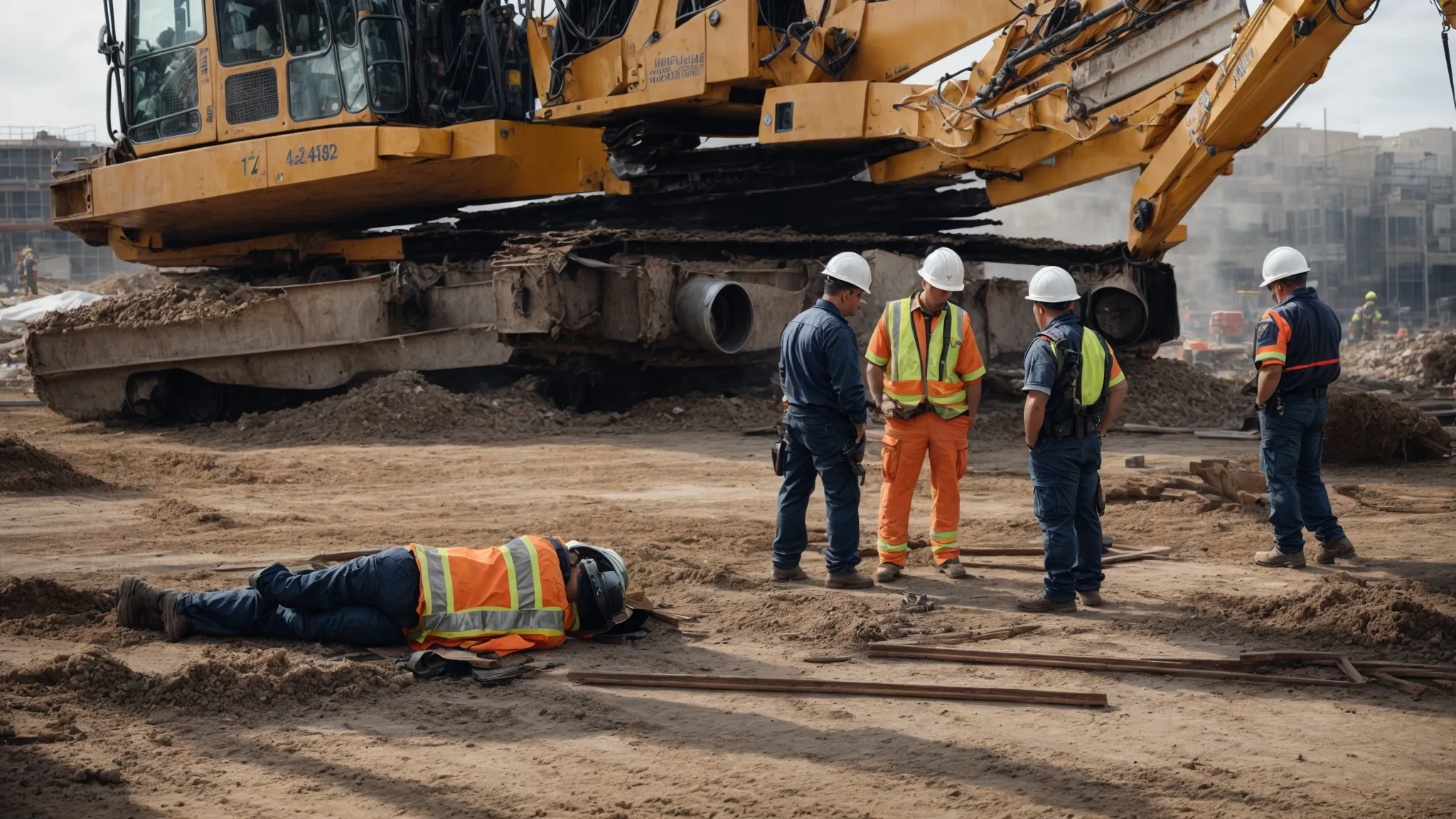Navigating through a divorce can be an emotionally taxing and complex journey, but it doesn’t always have to lead to a courtroom battle.
That’s where the expertise of divorce mediation Legal Professionals in West Valley, UT, comes into the picture, offering a path to an amicable resolution that respects the needs and wishes of both parties.
By choosing mediation over litigation, couples find a private, more peaceful means to reaching an agreement that serves both their futures.
This alternative approach can significantly reduce the emotional and financial strain typically associated with divorce proceedings.
Keep reading to uncover the ins and outs of divorce mediation and how it can pave the way to a new beginning for everyone involved.
Key Takeaways
- Choosing a Divorce Mediation Attorney in West Valley, UT, Is Essential for Navigating the Complex Nature of Divorce With Expert Guidance and Understanding
- Divorce Mediation Attorneys Provide Personalized Strategies to Tackle Unique Aspects of Each Case, Including Property Division, Child Custody, and Alimony
- The Success of West Valley’s Divorce Mediation Attorneys in Facilitating Amicable Resolutions Builds Trust and Confidence Among Those Seeking Their Services
- Opting for Mediation Over Litigation Can Significantly Reduce the Emotional and Financial Stress of Divorce Proceedings, Promoting a More Harmonious Resolution
- Setting Clear Goals and Maintaining Open, Effective Communication Are Vital for Achieving Successful and Satisfying Outcomes in Divorce Mediation
Why Choose West Valley’s Mediation Experts for Your Divorce

Choosing a divorce mediation attorney in West Valley, UT, comes down to finding someone who not only comprehends the intricate landscape of divorce law but also possesses the specific expertise required to navigate through complex cases with finesse.
The terrain of divorce, layered with emotional, financial, and legal complexities, mandates a professional who has demonstrated a consistent ability to steer mediations toward successful resolutions.
The right mediation experts bring a blend of keen legal acumen and empathetic understanding, essential for crafting agreements that respect the interests of all parties involved.
With a focus on expertise in handling challenging divorce scenarios and a proven track record that speaks to their success, West Valley’s mediation attorneys stand out as a beacon of hope for those seeking amicable and equitable solutions in times of marital upheaval.
Expertise in Navigating Complex Divorce Cases
When it comes to the labyrinth of divorce proceedings, expertise in handling multifaceted cases stands as the cornerstone of West Valley’s divorce mediation attorneys. These professionals are equipped with a deep understanding of varied family dynamics and the legal intricacies that accompany them, ensuring that every case is approached with a tailored strategy.
Recognizing that no two divorces are identical, West Valley mediators specialize in dissecting the unique aspects of each case, addressing complex issues like property division, child custody, and alimony with precision and tact. This adeptness promises a resolution that aligns with the client’s interests but also adheres to the legal standards:
- Initial assessment of the conflict to understand the key points of contention and mutual interests.
- Strategic planning that involves formulating a negotiation approach designed to foster cooperation between the parties.
- Execution of mediation sessions, guiding both parties towards a mutually beneficial agreement.
Proven Track Record of Successful Mediation
West Valley’s divorce mediation attorneys are celebrated for their extensive history of facilitating smooth and successful mediation. Their reputation is built on a foundation of numerous cases where they have successfully guided couples through the turbulent waters of divorce, achieving settlements that are fair, respectful, and satisfactory to all parties involved. This history of success not only highlights their expertise and commitment but also instills a sense of trust and confidence in those who seek their help.
The efficacy of these mediation experts is evidenced by their ability to minimize conflict and promote constructive dialogue between parties. Through their skillful negotiation and deep understanding of the law, they ensure that the final agreements are comprehensive, addressing all concerns in a manner that is both equitable and legally sound. Their track record speaks volumes, offering peace of mind to individuals navigating the challenging journey of divorce.
The Benefits of Choosing Mediation Over Litigation

In the heart of West Valley, the choice between mediation and litigation presents a significant fork in the road for couples facing divorce.
Opting for mediation, under the guidance of West Valley’s seasoned divorce mediation attorneys, offers a pathway marked by heightened efficiency and decreased emotional toll.
This alternative to court battles not only conserves precious time but also plays a pivotal role in diminishing stress levels that invariably accompany divorce proceedings.
Furthermore, mediation paves the way for a more harmonious resolution, enabling disputing parties to reach agreements that reflect mutual respect and understanding.
As such, mediation stands as a beacon for those seeking a dignified conclusion to their marital disputes, promising a smoother transition into the next chapters of their lives.
Saves Time and Reduces Stress Levels
The streamlined process of mediation, spearheaded by West Valley’s premier divorce mediation attorneys, inherently reduces the time commitment required to reach a divorce settlement. Eliminating the need for prolonged court proceedings, parties find themselves able to expedite their paths to resolution, liberating them to move forward with their lives more quickly.
By opting for mediation over litigation, individuals experience a marked decrease in stress levels, a benefit not just to their emotional well-being but also to their overall health. West Valley’s mediation professionals facilitate discussions in a neutral environment, encouraging open communication and understanding, which inherently diminishes the anxieties and tensions typically associated with divorce processes.
Offers a More Amicable Way to Resolve Disputes
West Valley’s distinguished divorce mediation attorneys offer an avenue for dispute resolution that emphasizes collaboration over confrontation. This approach significantly transforms the narrative of divorce from one of winners and losers to a process where both parties work together towards a common goal. It’s a philosophy that not only preserves the dignity of all involved but also sets a positive precedent for any future interactions, especially important for couples with children.
By steering discussions towards mutual benefits rather than individual victories, West Valley’s mediation experts help divorcing couples find common ground in a way that litigation seldom allows. This facilitation of dialogue leads to resolutions rooted in understanding and respect, fostering a climate where agreements are reached not with resentment, but with a sense of fairness and cooperation. Such outcomes often lead to more sustainable post-divorce relationships and a smoother adjustment to new beginnings.
Step-by-Step Guide to Starting the Mediation Process
Embarking on the path of divorce mediation signifies the beginning of a new chapter, one that demands careful preparation and clear intentions.
The initial steps involve scheduling your first consultation with a distinguished West Valley divorce mediation attorney and meticulously preparing your documentation.
These preliminary actions set the stage for a mediation process aimed at achieving constructive outcomes.
Establishing clear goals for mediation allows both parties to articulate their expectations, facilitating a process that is both efficient and equitable.
This guided approach ensures that the complex journey of divorce mediation commences on solid footing, paving the way for resolutions that honor the needs and interests of all involved.
Scheduling Your First Consultation With a Lawyer
Initiating the process of divorce mediation by scheduling the first consultation with a West Valley divorce mediation attorney is a critical step. It is here that individuals have the opportunity to relay the specifics of their situation and receive targeted advice tailored to their unique circumstances.
This initial meeting serves as a foundational building block in establishing a roadmap for the mediation journey:
- It provides insight into the legal expertise of the attorney, ensuring they are well-suited to handle the case.
- Couples gain an understanding of the mediation process and what to expect in the coming sessions.
- Finally, it aligns the expectations and objectives of both parties with the mediation goals, setting a cooperative tone for future negotiations.
Preparing Documentation and Setting Goals for Mediation
Preparing the necessary documentation for mediation is a vital step that ensures all financial, child custody, and property division issues are transparently addressed. Gathering financial statements, property documents, and any relevant legal paperwork prior to mediation sessions equips both parties with the facts needed to make informed decisions.
Setting clear and realistic goals for mediation is equally important, guiding the negotiation process to focus on achieving outcomes that align with both parties’ future well-being. This strategic planning enables couples to enter mediation with a shared understanding of what they seek to accomplish, fostering a more directed and productive discussion.
Understanding Your Rights During Divorce Mediation
Embarking on the journey of divorce mediation with a skilled attorney in West Valley, Utah, ensures that all parties fully understand and exercise their legal rights throughout the process.
Mediation, while focused on amicable resolution, does not diminish the importance of safeguarding one’s legal entitlements and financial protections.
Navigating through these critical aspects, along with the delicate issue of child custody, requires adept legal guidance.
West Valley’s leading divorce mediation lawyers excel in elucidating the complexities surrounding legal entitlements, offering robust protection of financial interests, and ensuring that child custody decisions are made with the children’s best interests as the paramount concern.
Legal Entitlements and Financial Protections Explained
Navigating the legal minefield of divorce necessitates a profound understanding of one’s legal entitlements and financial protections. West Valley’s adept divorce mediation attorneys possess the expertise to ensure clients are fully versed in their rights, providing a solid foundation upon which to build equitable settlements.
One critical aspect under discussion involves the equitable distribution of assets and liabilities: ensuring a fair division that acknowledges both parties’ contributions and future needs. This is where the precision and negotiating prowess of West Valley’s mediation attorneys come into play, safeguarding clients’ financial futures:
How Child Custody Decisions Are Handled in Mediation
In West Valley, child custody decisions during divorce mediation are approached with utmost sensitivity and prioritization of the children’s best interests. Mediators work collaboratively with both parents to explore and evaluate various custody arrangements, always aiming to foster an environment where the child’s welfare is paramount.
Through careful discussion and negotiation, an agreement is often reached that supports not only the child’s emotional and physical needs but also maintains parental involvement to the fullest extent possible. This process ensures that solutions are tailored to fit the unique needs of each family:
- Review of each parent’s living situation and relationship with the child.
- Discussion of potential custody arrangements and schedules.
- Finalization of a custody plan that serves the best interests of the child, with the input and agreement of both parents.
Frequently Asked Questions
What is a mediated divorce?
A mediated divorce refers to the process of ending a marriage through mediation, a collaborative approach that aims to resolve conflicts amicably and without going to court. In this method, couples work with a neutral third party, known as a marriage mediator, to facilitate discussions and negotiations regarding the terms of their divorce.
Marriage mediation involves a series of structured sessions where the mediator helps the couple navigate various aspects of their divorce, such as child custody, division of assets, spousal support, and any other relevant issues. The mediator does not make decisions for the couple but rather assists them in reaching their own agreements.
During mediation, couples engage in brainstorming sessions, where they explore different options and solutions with the guidance of the mediator. This process encourages open communication and empowers couples to make decisions that are tailored to their specific needs and circumstances.
Once an agreement is reached, the couple typically creates a memorandum of understanding, which outlines the terms they have agreed upon. This document serves as a blueprint for the divorce settlement.
In the United States, divorce through mediation has become increasingly popular due to its many benefits, including lower costs, faster resolution times, and reduced conflict. According to statistics on divorce, mediated divorces often result in higher satisfaction rates for both parties compared to contentious courtroom battles.
A mediated divorce also provides couples with a checklist of important considerations to address, ensuring that nothing is overlooked during the process. This checklist may include financial disclosures, parenting plans, division of property, and any other relevant issues.
It is important to note that while couples in a mediated divorce work with a mediator, they still have the option to consult with divorce attorneys throughout the process. Attorneys can provide legal advice and review any agreements to ensure they are fair and legally sound.
In summary, a mediated divorce offers couples a collaborative, less adversarial approach to ending their marriage, emphasizing communication, cooperation, and tailored solutions to reach a mutually agreeable outcome.
How much does it cost for a divorce mediator?
The cost of a divorce mediator can vary depending on several factors, including the mediator’s experience, location, and the complexity of the divorce. Some mediators charge a flat rate for their services, meaning you pay a set amount for the entire mediation process, regardless of the number of sessions or time taken to reach an agreement. Others may have an hourly rate, where you pay for each session’s duration. Hourly rates can range widely based on the mediator’s expertise and where they practice. In addition to these fee structures, some mediators might require a retainer fee upfront, which acts as an advance payment.
Understanding the terms of service is crucial, as these documents outline fees, cancellation policies, and other important details. For those with financial constraints, some mediators offer pro bono services, although availability can vary. Many mediators provide a FAQ section on their websites or materials, offering clarity on fee-related questions. Payment methods, such as checks, credit cards, or electronic transfers, should also be considered when planning for mediation fees.
It’s common for family law mediators to specialize in divorce mediation, providing expertise in navigating issues like child custody and asset division. While not directly tied to fees, mediation can also be used in adoption processes and to establish consent agreements. During mediation, the discovery phase involves gathering information about assets, debts, and other relevant details.
The Memorandum of Understanding (MOU) serves as the final document outlining the agreements reached during mediation, helping to ensure clarity and understanding between the parties involved.
How does divorce mediation work in Utah?
In Utah, divorce mediation offers couples an alternative to traditional courtroom divorce proceedings, focusing on resolving disputes through communication and negotiation with the assistance of a neutral third-party mediator. The divorce process often begins with one or both spouses filing a petition for divorce with the appropriate Utah court. Before or after filing, couples may choose to engage in voluntary mediation to address key issues such as child custody, division of assets, and spousal support.
Divorce mediators in Utah are trained professionals who facilitate discussions between spouses, remaining neutral while assisting in exploring options, fostering compromise, and reaching settlements that are fair and equitable. Couples who are uncertain about divorce may opt for legal separation, also amenable to mediation, allowing them to address immediate concerns such as living arrangements, child custody, and financial responsibilities while deciding on the future of their marriage. In cases involving domestic violence or safety concerns, Utah courts prioritize the well-being of all parties involved, with options for protection orders and appropriate legal protections.
Utah encourages alternative dispute resolution methods like mediation and arbitration, with divorce arbitration involving a neutral arbitrator making binding decisions when couples cannot agree. Divorce mediation often results in lower costs compared to a lengthy courtroom battle, allowing couples more control over outcomes and fostering agreements that suit their unique circumstances.
Privacy is a significant advantage, as mediation discussions are confidential and not part of public record. While divorce mediators can offer general information, they do not provide legal advice, encouraging couples to consult individual attorneys to review proposed agreements and protect their rights. Utah communities offer resources such as support groups and counseling to assist individuals during the divorce process, with insurance considerations, like health and life insurance coverage, also addressed during mediation sessions.
According to Utah divorce and child custody statistics, many couples who choose mediation report higher satisfaction rates with the process and outcomes, significantly reducing the emotional stress often associated with divorce and promoting a more amicable path forward for both spouses and any children involved.
Tips for a Successful Divorce Settlement Through Mediation
Entering the mediation room with an open mind is the first step toward a successful divorce settlement. West Valley’s premier divorce mediation attorneys guide their clients through the process by encouraging flexibility and a willingness to consider alternative solutions. This approach often leads to innovative agreements that satisfy both parties.
Effective communication plays a critical role throughout the mediation process. Clients are urged by their West Valley mediation attorneys to articulate their needs and concerns clearly while also actively listening to the other party. This dual focus fosters an environment conducive to mutual understanding and compromise.
Setting realistic expectations is another cornerstone of successful mediation. The experienced divorce mediation attorneys of West Valley assist their clients in distinguishing between what is desirable and what is achievable. This realistic outlook enables parties to work constructively towards a settlement that addresses the most critical aspects of their separation.
Maintaining focus on the bigger picture helps divorcing couples navigate through the emotional turbulence of separation. Through the guidance of West Valley’s seasoned divorce mediation lawyers, clients learn to prioritize long-term well-being over short-term gains, paving the way for agreements that stand the test of time.
In the realm of divorce and mediation, prioritizing the bigger picture proves invaluable for couples navigating the emotional turbulence of separation. West Valley’s collaborative law firm, led by seasoned divorce mediation lawyers, guides clients toward a focus on long-term well-being over immediate gains. This approach lays the foundation for agreements that endure the test of time, fostering stability in post-divorce life.
Under the guidance of West Valley’s experienced divorce mediation lawyers, couples engage in a collaborative law process that emphasizes forward-looking resolutions. This involves prioritizing discussions on crucial matters such as child custody, asset division, and spousal support with an eye toward the future impact on both parties’ lives. By working with skilled professionals adept in divorce and mediation, couples benefit from tailored agreements that suit their unique circumstances.
Throughout this process, West Valley’s divorce lawyers facilitate open dialogue, ensuring both parties have a platform to voice their needs and concerns. Through collaborative law principles, couples participate in productive brainstorming sessions, exploring various avenues for resolution with the guidance of their mediators. This collaborative approach, a hallmark of divorce and mediation practices, encourages mutual understanding and compromise.
The role of the judge is minimized in this collaborative law model, allowing couples greater control over the outcome of their divorce proceedings. This sense of empowerment often leads to higher satisfaction rates as couples actively shape the agreements that will govern their post-divorce lives. Moreover, the confidentiality of mediation sessions, a cornerstone of divorce and mediation practices, safeguards sensitive matters and preserves the dignity of both parties involved.
For those seeking the services of West Valley’s collaborative law firm in matters of divorce and mediation, confidentiality and privacy are assured. Clients can engage with their skilled divorce mediation lawyers in a safe and supportive environment, free to address legal separation, domestic violence concerns, and other sensitive issues. This ensures that the focus remains on prioritizing long-term well-being and crafting agreements that endure.
To learn more about West Valley’s collaborative law approach to divorce and mediation, individuals can easily reach out for a confidential consultation. By contacting the law firm, couples can take the first step towards prioritizing their long-term happiness and stability amidst the challenges of separation.
Divorcing couples in West Valley, Utah, benefit greatly from the expertise of seasoned divorce mediation lawyers who understand the importance of maintaining focus on the bigger picture during this emotionally turbulent time. By working with experienced professionals in divorce mediation, such as those in West Valley, couples learn to prioritize their long-term well-being over short-term gains. This approach helps pave the way for agreements that not only address immediate concerns but also stand the test of time.
Utilizing the services of divorce mediation lawyers in West Valley allows couples to navigate through the complexities of divorce with clarity and guidance. These professionals emphasize the significance of considering factors such as child custody, division of assets, and spousal support in the context of the long-term impact on both parties’ lives. By employing the expertise of divorce mediators in West Valley, couples engage in productive discussions and negotiations that lead to agreements tailored to their unique circumstances.
In the process, the divorce mediation lawyers in West Valley facilitate discussions on crucial issues, ensuring that both parties have the opportunity to express their needs and concerns. Through this open communication facilitated by experienced mediators, couples engage in brainstorming sessions to explore various options for resolution. This collaborative approach aligns with the principles of alternative dispute resolution, emphasizing mutual understanding and compromise.
Considering the statistics and data on divorce, couples in West Valley benefit from the higher satisfaction rates reported by those who choose mediation over traditional courtroom battles. This satisfaction often stems from the sense of control and empowerment that mediation provides, allowing couples to actively participate in shaping their post-divorce arrangements. Additionally, the privacy of mediation sessions ensures that sensitive matters remain confidential, safeguarding the dignity and privacy of both parties involved.
Amidst considerations of legal separation, domestic violence concerns, and insurance matters, West Valley’s divorce mediation lawyers offer a comprehensive approach to divorce resolution. They provide a safe and supportive environment for couples to address these challenging issues while focusing on creating sustainable agreements for the future.
For those in West Valley navigating divorce, seeking the guidance of experienced divorce mediators provides a path toward a more amicable and constructive resolution. By prioritizing long-term well-being and utilizing the expertise of mediation professionals, couples can lay the groundwork for a smoother transition into their post-divorce lives, ensuring that agreements reached withstand the test of time and changing circumstances.
Conclusion
West Valley’s leading divorce mediation lawyers offer unmatched expertise and compassion, guiding couples through the complexities of separation with a successful track record of amicable resolutions.
They excel in handling intricate divorce cases, including asset division, child custody, and alimony, ensuring that all parties find fair and respectful settlements.
With a focus on minimizing conflict and promoting efficient, stress-free processes, these mediators provide a constructive alternative to traditional litigation.
Their approach not only saves time and reduces stress but also fosters a cooperative environment leading to durable agreements and healthier post-divorce relationships.
By starting the mediation process with clear goals and proper documentation under the guidance of West Valley’s skilled attorneys, clients can protect their legal and financial rights, achieving equitable solutions that prioritize children’s welfare.
Choosing West Valley’s mediation experts is a step toward a dignified resolution of marital disputes, promising a smoother transition into life’s next chapters.



